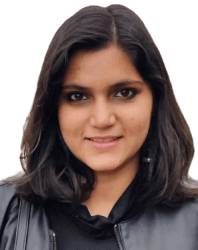- HOME
HOME
- SERVICES
SERVICES
- Study Abroad
Study Abroad
- Study Abroad Counseling
- Parent Counseling
- Test Prep
- College Selection
- Essay Editing and Applications
- Interview Prep
- Post Interview Essay
- Re-applicant Essay
- Resume Review
- Post Result Strategy
- Scholarship Application
- Waitlist Letter
- Letter of Recommendation (LOR)
- Study Abroad Scholarships
- IBDP Diploma Essays
- Essay tutorial
- Career Guidance
- Packages
- FAQ
- Study In India
- Skill Enhancement
- Study Abroad
- DEGREES
- TESTIMONIALS
- TEAM
- OFFERS
- RESOURCES
RESOURCES
- Free Tools
- Undergrad (8th – 12th Grade)
- Masters
- MBA
- M.Phil / Ph.D
M.Phil / Ph.D
- Executive Education
Executive Education
- Career Guidance
- Top Global Universities
- Top MBA Programs
- Admission Officers Insights
- Books
- EVENTS
EVENTS
- FINANCE YOUR EDUCATION
FINANCE YOUR EDUCATION
- MEDIA
- HOME
- SERVICES
- Study Abroad
- Study Abroad Counseling
- Parent Counseling
- Test Prep
- College Selection
- Essay Editing and Applications
- IBDP Diploma Essays
- Essay tutorial
- Interview Prep
- Post Interview Essay
- Re-applicant Essay
- Resume Review
- Post Result Strategy
- Scholarship Application
- Waitlist Letter
- Letter of Recommendation (LOR)
- Study Abroad Scholarships
- Career Guidance
- Packages
- FAQ
- Study In India
- Skill Enhancement
- Study Abroad
- DEGREES
- TESTIMONIALS
- TEAM
- OFFERS
- RESOURCES
- EVENTS
- FINANCE YOUR EDUCATION
- MEDIA
Don't let the lockdown lock you down!
We know that the present pandemic can be difficult. However, this is a great time to reflect on your study abroad and career goals and plan ahead.
We have made our services accessible at reduced prices in this lockdown. ReachIvy.com Experts are here to help you!
Indian School Certificate (ISC)
The ISC is a two-year academic program designed for students in grades 11 and 12 (aged 16 -19). It is a slightly more rigorous program known for developing strong fundamentals of a subject by using the repetitive method and building the practical knowledge through practical assignments. It is also an internationally recognized and accepted qualification for entry into higher education.
The ISC follows the learning method based on understanding, application, practical experience and skill-set based learning. It focus on developing interdisciplinary understanding although its academic curriculum is rigorous compared to most of the others. Projects are an integral part of the curriculum, which helps develop analytical skills in a student. The ISC board offers its students strong conceptual knowledge but prepares them for management studies as well.
Program Overview
- The curriculum is made up of 3 categories or subject groups consisting of compulsory subjects, elective subjects, and the common subjects.
- 3 Subject Groups. Students have a vast range of subjects to choose from each within the three groups. A minimum of 5 subjects and a maximum of 7 subjects should be selected for qualifying at ISC. The curriculum exposes the student to both depth and breadth of knowledge and understanding.
- Compulsory Subjects. English is the compulsory subject. It consists of Paper 1: Language and Paper 2: Literature.
- Elective Subjects. You can choose any three, four or five subjects out of the elective subjects available. The subjects offered will depend on the stream you want to pursue. Science stream include electives like Physics, Chemistry, Mathematics, Biology and Economics. Commerce offers Accounts, Commerce, Mathematics and Economics. While Arts give you the opportunity to choose from History, Geography, Psychology and Economics.
- Common Subject. These are the subjects offered to students from all the three streams. Students have to choose any one from Political Science, Computer Science, Hindi, Art, Music and Physical Education
Assessment
The assessment criteria is a combination of both internal and external assessment. Internal assessments are vital in ISC but generally an externally assessed written exam at the end of the 12th grade accounts for the final grade. Practical tests are aggregated with the overall scores. Internal assessments are used to evaluate community service and the attendance record. A candidate is required to have obtained at least 40% marks in a minimum of four subjects which must include English, on the cumulative average and a minimum attendance of 75% working days.
Is It Right For You?
Deciding if the ISC exam is right for you partly depends on how you learn and your future aspirations. The ISC system is comprehensive but rigorous as it aims to provide practical knowledge and build analytical skills in students. It follows a balanced approach towards maintaining equal focus on language, arts and science along with making sure that you also develop your soft skills through active interaction and environment. Students who are interested in careers in management and humanities will find the curriculum to be better aligned. Additionally, the ISC certification is recognized globally and due to the emphasis placed on English, students can gain a slight advantage compared to other Indian boards.
Conclusion
The ISC is an integrated learning experience – not only does it emphasize academic strength in a range of academic subjects, but also fosters positive attitude towards learning and responsibility towards your community.
MEET OUR EXPERTS

Garima Rana
MPP - University of Oxford
B.Sc.,Indira Gandhi Delhi Technical University

Ananya Jain
B.Com, Delhi University
M.Fin, Cambridge Judge Business School

Kovid Gupta
MBA, Cornell University
BBA, BS, BA, The University of Texas at Austin

Archana Rao
MBA, Darden University of Virgina
B.Tech, University of Pune

Suman Barua
M.Ed, Harvard University
B.E, Mumbai University

Madhav Pathak
MBA, Indian School of Business
MS, Carnegie Mellon University

Gaargi Desai
MS, Harvard University
BA, Tulane University

Ameya Bhangle
MBA, Harvard Business School
B.Sc.(IT), St. Xavier’s College, Mumbai

Niyati Dave
MA, Smith College, Northampton
Fellowship, Urban Studies/Affairs

Aashay Doshi
MBA, Tepper School of Business Carnegie Mellon University
B.Sc., University of Maryland College Park
OUR STUDENTS HAVE REACHED







